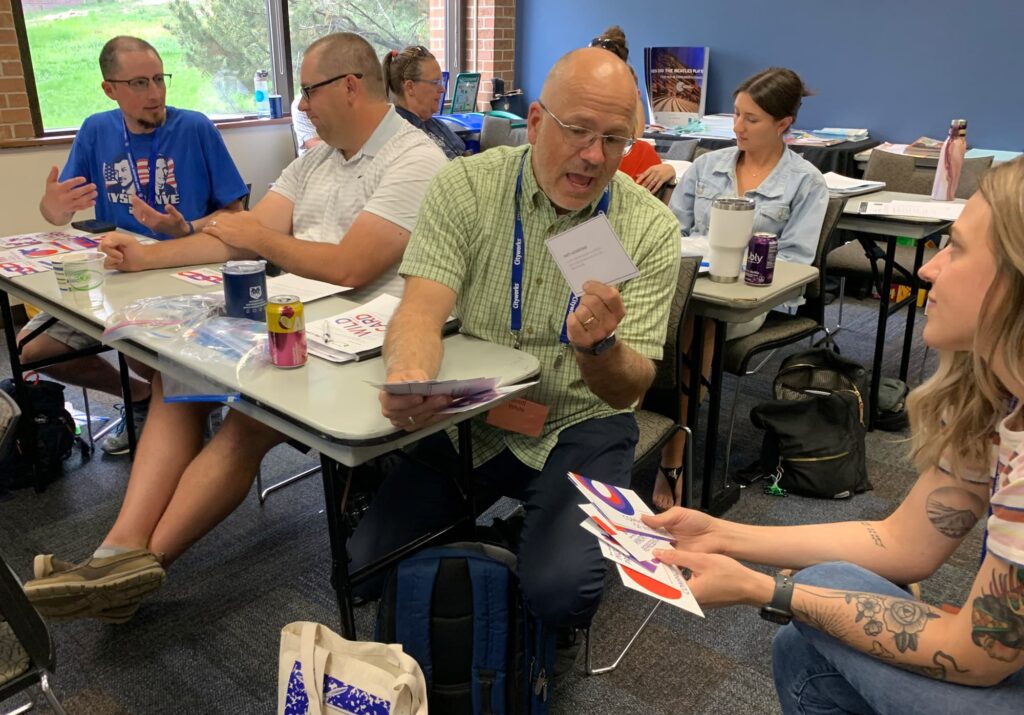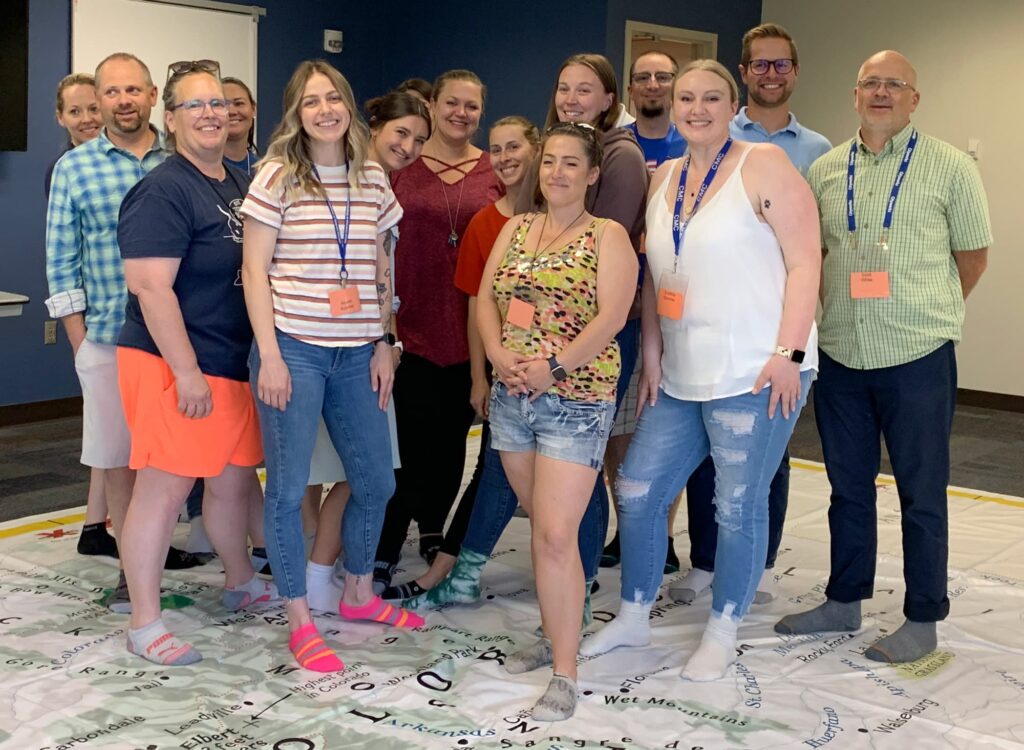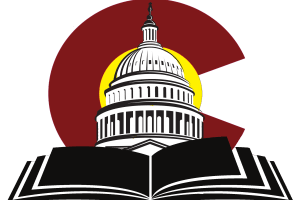One of the primary ways the Colorado Center for Civic Learning and Engagement supports civics education in the state is through teacher training and program development.
Current Opportunities
James Madison Legacy Project Expansion: Empowering High-Need Students for Informed, Thoughtful, and Productive Citizenship
A new free project to empower high-need students through improved professional learning and instruction in the We the People: The Citizen and the Constitution curricular program! Includes new resources for We the People instruction that foster positive civics and social and emotional learning (SEL) outcomes among English learners, students with disabilities, and students of color. Eligible CO Secondary Social Studies Teachers receive a set of classroom books, travel support, and a $1000 completion stipend. Register today. Limited to 20 Teachers. Apply for the JMLPE (Google Form). 52 hrs. of professional learning. Begins with a four-day workshop at History Colorado Center July 17-20, 2023 Made possible by a US Department of Education Grant received by the Center for Civic Education. Click here to read a Pilot Study Report. Check out page 2 for key findings about learning among students that were part of this project’s pilot in the fall of 2022. Conducted by Georgetown University Researchers.
National Social Studies Opportunities Summer 2023
(Google Spreadsheet) A great list of Social Studies Professional Development Opportunities in the USA. Compiled by Stephanie Wager, Former NCSS President. Click here to view.

Past Professional Opportunities
Project Citizen Research Project
What: The Center for Civic Education in cooperation with researchers at Georgetown University
are offering a professional development opportunity to teachers using the Center’s Project Citizen Curriculum.
Who: Middle and high school teachers in Region 2 (Colorado, Kansas, Montana, Nebraska, New Mexico, North Dakota, Oklahoma, South Dakota, Texas, and Wyoming)
There are two slots guaranteed for Colorado, with a possibility of up to six Colorado teachers being selected.
When: July 24—30, 2022. Dates for the follow-up pd will be determined by the group and will take place virtually, one evening a month from Sept 2022 to March 2023. Teachers can implement in either the Fall or Spring Semesters as determined by their schedule. Project Citizen can be taught throughout the 2022-2023 academic year if this is preferable.
Participation in Project Citizen Professional Development and Research Project which includes: A five day seminar, participating in 12 hours of follow-up professional development, administering a pre-test and a post-test to at least one class of students, taking the teacher’s pre-test and a post-test, teaching Project Citizen in at least one class, submitting this class’s portfolio to the Region 2 showcase in June of 2023.

The Citizen & the Constitution: A Practical Guide to Teaching Civics to Colorado Students
Funded by the Denver Rotary & C3LE Donors
What: A Three-Day Workshop with Emphasis on the We the People Program and Colorado’s Revised Social Studies Standards
When: August 1-3, 2022, 8:45 am – 4 pm
GeoCivics: The Politics and Geographies of America’s Electoral System
Funded by William E. Hewit Institute for History and Social Science Education
What: A Three-Day Summer Institute June 13-15, 2022, CO Springs
Who: Secondary Teachers & Pre-service Teachers of Civics, Geography, History, and Math
When: June 13 – 15, 2021, 7:30 am – 5 pm
Where: University of Colorado, Colorado Springs
Institute provides in-depth, hands-on exposure to historical analysis, spatial thinking, and instructional techniques focused on the challenges of creating fair electoral districts, using Colorado as a case study. Teachers will gain insight into how political scientists, geographers, mathematicians, and public officials engage in conversation about representation in a modern democratic republic. The process of drawing electoral districts is a gateway for discussing geography, demographics, and political systems and an opportunity to introduce your students to the importance of geospatial technology and geographic information systems.

